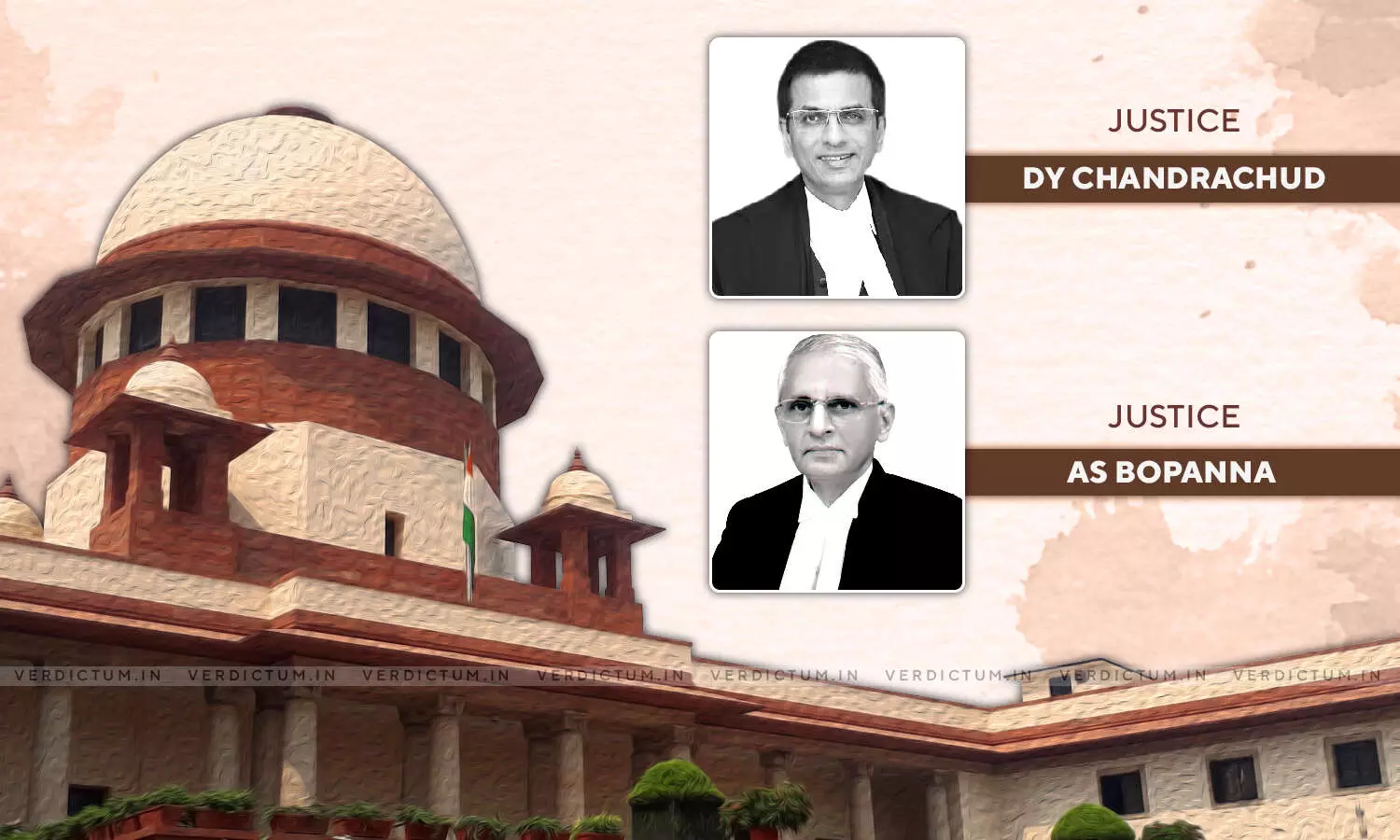
Reliefs Claimed Beyond Scope Of Maharashtra Housing Act – SC Holds Suit Maintainable Before Civil Court
 |
|Reliefs Claimed Beyond Scope Of Maharashtra Housing Act – SC Holds Suit Maintainable Before Civil Court
The Supreme Court has observed that the reliefs claimed by the Appellant are beyond the scope of the Maharashtra Housing and Area Development Act 1976 (the Act) and a suit of this nature will be maintainable before the Civil Court and would not be barred by Section 71 or Section 177 of the Act.
The Bench of Justice D.Y. Chandrachud and Justice AS Bopanna while holding so, noted –
"The appellant instituted the suit for injunction because her easements were infringed by the illegal construction which the first respondent had erected on the open space. The reliefs claimed by the appellant are beyond the scope of the Act. A suit of this nature will be maintainable before the civil court and would not be barred by Section 71 or Section 177 of the Act."
In this case, the Single Judge of the Nagpur Bench of the Bombay High Court had while adjudicating upon a second appeal filed under Section 100 CPC held that the suit instituted by the Appellant is barred under Sections 71 and 177 of the 1976 Act. The High Court had reversed the concurrent findings of the Trial Court in the suit and of the First Appellate Court.
The Appellant alleged that the First Respondent made an illegal and unauthorized construction in an open vacant site situated near her apartment.
It was further alleged that the First Respondent had constructed four rooms, as a consequence of which the Appellant's easement rights were affected.
The Appellant also contended that the Appellant had raised complaints against the illegal construction to the First and Second Respondent and also issued notices to them for removing the construction. However, they did not respond to the complaints and notices.
The Appellant then instituted a suit and sought appropriate reliefs.
The First Respondent filed a written statement contending that the civil court does not have the jurisdiction to entertain the suit under the provisions Section 71 read with Section 177 of the Act.
Counsel Somiran Sharma appeared for the Appellant, Counsel Satya Kam Sharma appeared for the First Respondent and Counsel Sanjay Kharde appeared for the Second Respondent before the Supreme Court.
The Apex Court referred to Sections 71 and 177 of the 1976 Act.
*Section 71* - Bar of jurisdiction of civil courts - No civil court shall have jurisdiction to entertain any suit or proceeding in respect of the eviction of any person from any Authority premises, and
*Section 177* - Bar of jurisdiction - No civil court shall have jurisdiction in respect of any matter which the Authority or the Tribunal is empowered by or under this Act, to determine.
The Court also referred to Section 66 of the Act which states the power to evict persons from Authorized premises.
However, the Bench noted that the Appellant did not seek the eviction of the First Respondent in the suit.
The Court further also noted that under Section 9 CPC, the Civil Court has jurisdiction to try suits of all civil nature, except those in respect of which the jurisdiction is barred either expressly or impliedly by a specific provision of law.
The Bench further referred to the Preamble of the Act and added that is it not the frame of the suit or the relief which has been claimed by the Appellant in the suit, in this context, the Court observed –
"The reliefs sought by the appellant in the plaint are: (i) the removal of the unauthorized construction; (ii) a permanent prohibitory injunction restraining the defendants from constructing over the open site and causing 'nuisance'; and (iii) restoration of the water connection as it was prior to the construction."
Thus, the Court held that the suit of this nature will be maintainable before the Civil Court and would not be barred by Sections 71 or 177 of the 1976 Act.
The Court also asserted that the Single Judge of the High Court erred in upholding the plea that there was a bar of jurisdiction and reversing the findings of the trial Judge and the first appellate court.
Accordingly, the Court restored the Second Appeal to the file of the High Court for consideration on merits, allowed the appeal and set aside the impugned judgment of the High Court.
Cause Title – Sau Rajani v. Sau Smita & Anr